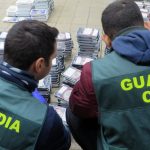The Marine Stewardship Council (MSC) and Marine Eco-Label (MEL) are the only organizations that certify fisheries as sustainable in Japan and slowly it is gaining popularity. As the sustainable seafood market has become demanding in the western world Japan is also following them.
The London-based MSC was created by the World Wildlife Fund and food conglomerate Unilever in 1997. The Tokyo office was set up in 2007, with Kozo Ishii serving as program director for Japan. The Kyoto Danish Seine Fishing Federation snow crab and flathead flounder fishery in the Japan Sea was the first Japanese fishery to be certified by the MSC, in September 2008.
It is informed that chain-of-custody (COC) certifications have been granted to 29 companies, mainly processors and a few distributors. The company repacks MSC certified products under its Green Eye label for its in-house TOPVALU brand. It is fact that nearly 150 imported MSC-labeled products are sold in Japan, with salmon and Alaska pollock (including many processed forms, such as fishcakes and surimi) being the largest in terms of volume.
Experts opined that the pole-and-line skipjack fishery for the central and western Pacific has been in the full assessment phase since last October and is expected to be approved in September or October. JFA spokesman Ken Kobayashi said the cost of MSC certification can be high, while the domestically administered MEL is more affordable for local Japanese fishery cooperatives.








